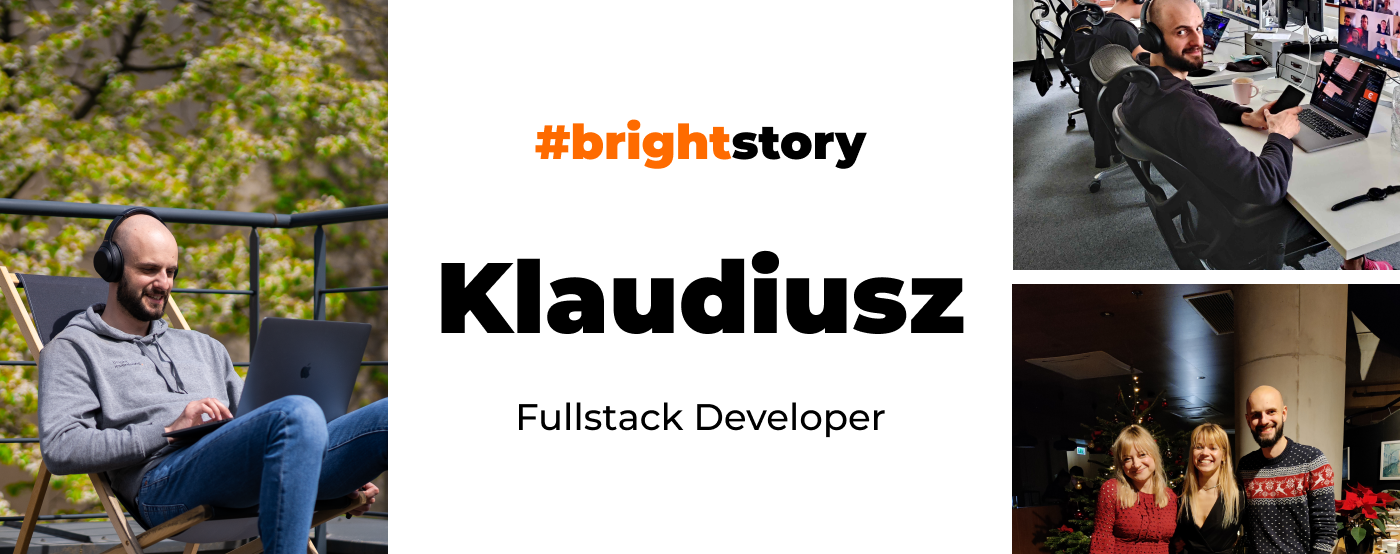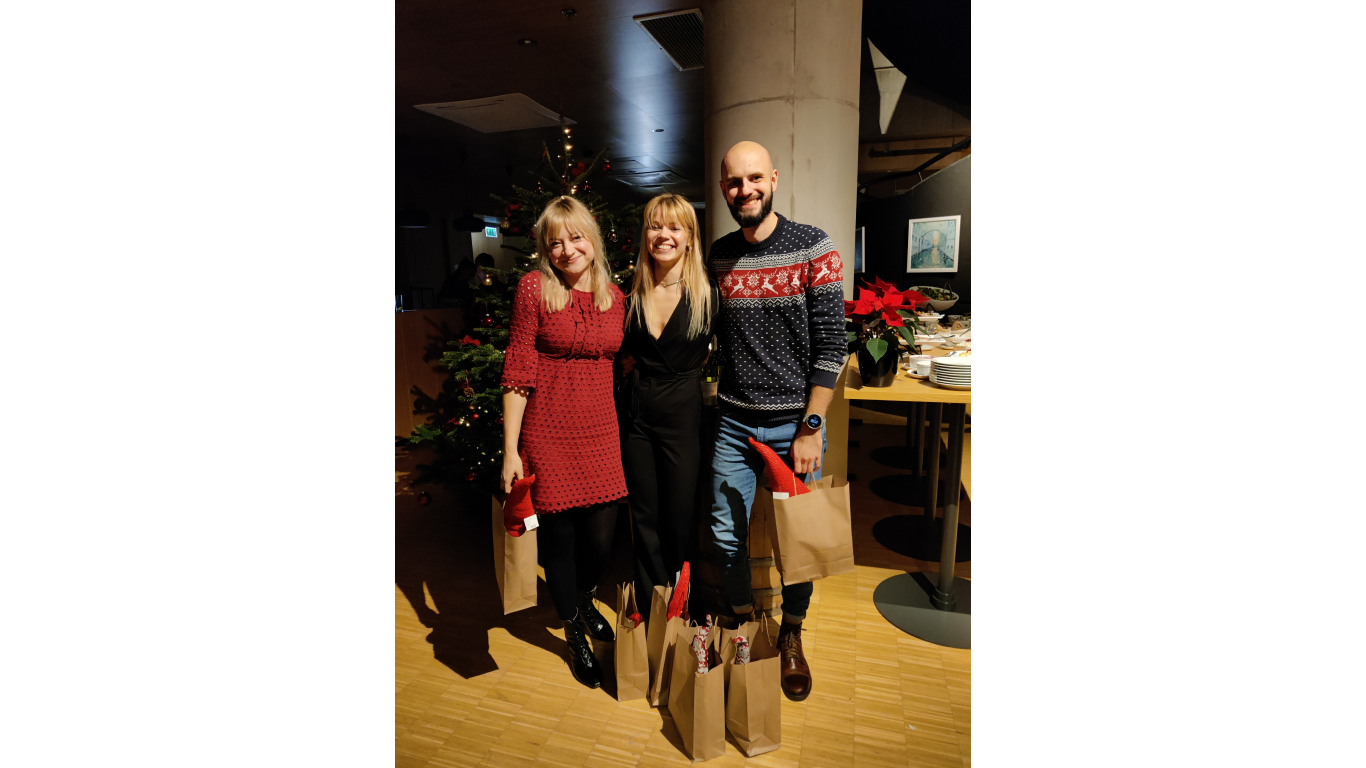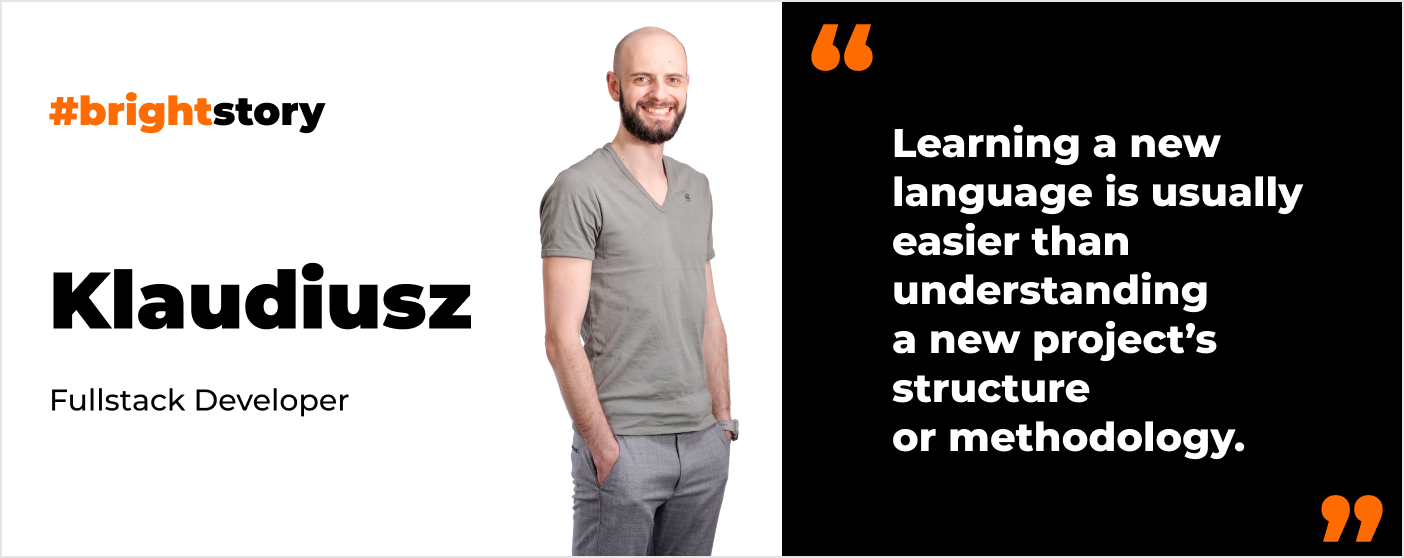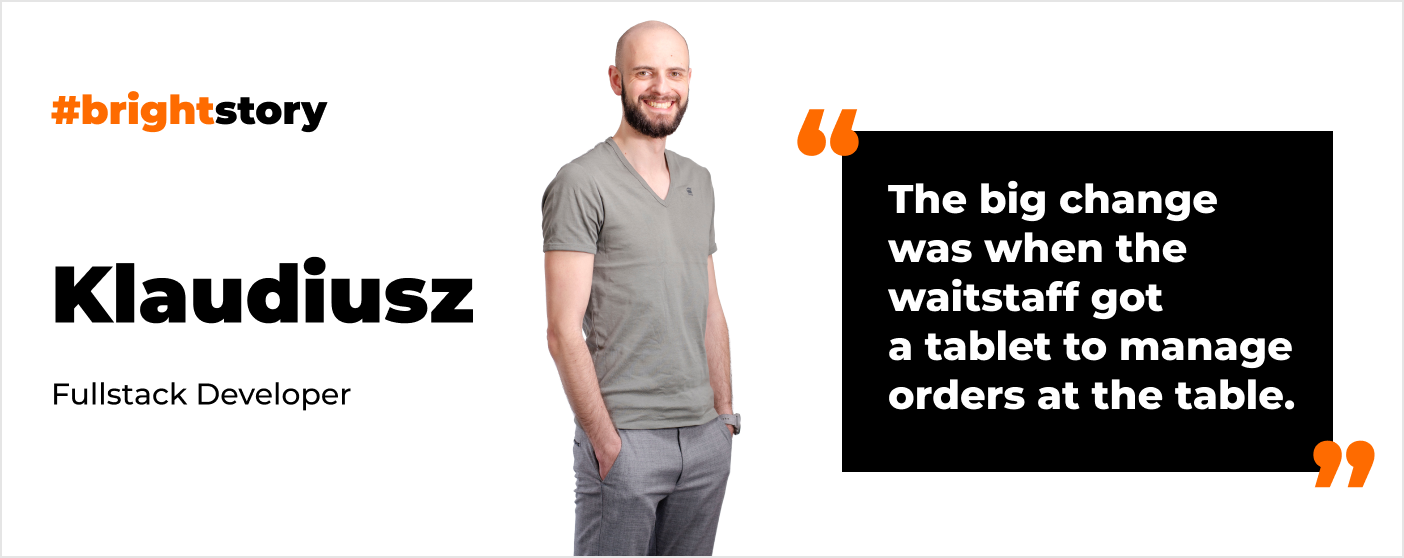Partnership Is a Dialogue. A Fullstack Developer Career Story
Klaudiusz's passion for mechanics eventually drove him into software development. Read about his career evolution, why he sometimes feels like an archaeologist, and his take on hospitality digitization.

You’re not a programmer by profession. How did you end up in software development?
Since I was a child, I always loved to play with a screwdriver, taking things apart. I also wanted to have a job close to sports, so I chose to combine it by studying Biomedical Engineering. As it turned out, the medical part wasn't appealing to me; I was more into the mechanical aspect in general.
So for my Master’s studies, I chose Mechatronics. I had some programming classes, mostly in C, but I really enjoyed it and decided that web programming might be my thing after all. Also, back then there weren't many opportunities for people graduating from mechatronics; it was difficult to really have an innovative job. I could work in manufacturing on setting production lines or doing the maintenance, but it didn't seem satisfactory to me.
How do you find yourself at Bright Inventions?
I cherish the variety of projects I got involved in because it gives me many opportunities to learn. I came in 2021 as a Java developer, and since then I've touched on Kotlin, NestJS, Typescript, React, Vue, and more. If you want to develop holistically and not just focus solely on backend or frontend, working here gives you that opportunity.

So changing the language has never been an issue to you?
Yes, programming languages differ, but it’s really more about semantics. Learning a new language is usually easier than understanding a new project’s structure or methodology.
For example, when designing a purchase flow for an e-commerce platform, you might fetch data for both the buyer and the seller. In a typical MVC setup, this would be handled by a service. But in domain-driven design, the purchase itself – as a business action – takes priority over the technical details of data retrieval.
These conceptual aspects matter more to me when starting a new project than the specific technologies I’ll be using.

What is your definition for a successful cooperation with a partner?
It takes place only when there is mutual respect. You can experience it in many ways. One of them is when your conversation with a partner isn't mostly a monologue, but you can also contribute, respond to the goals, tasks, and requirements the partner has. Also, simply have a chance to ask the necessary questions to better understand their side so you can adjust the product to their needs.
You had an opportunity to modernize 30-year-old POS legacy. What was the most challenging thing about it?
With every product, it depends on the partner’s key requirements. In this case, they expected compatibility with the old POS, so every action on the new app had to produce the same result as the old one. It requires a deep understanding of the old system, often by reading old code. It's useful to build a tool that helps you monitor changes in data happening when an action takes place. Still a lot of the time, I felt like an archeologist digging in the past.
For example, payments are crucial in every POS system, but they touch more aspects than one might think at first sight. A restaurant client has an order to pay for, and this results in not only the transaction itself, but the system also needs to align it with the right order, reconcile the payment, change order’s status, and create the right receipt containing the order and payment details. You might also store the data for every cashier separately so you can assign the order and payment to a specific cashier.
There is a lot going on behind a few-second transaction, and the steps might vary between the old and the new POS applications, but the result must be the same so the user can make the same transaction with the old one and the new app version. And syncing these processes was the challenge.
I heard you worked in hospitality for some time. Do you see now how many things could have been digitized back then?
When I started working at restaurants, we had POS banks – computers where every waitstaff member had to come and put the order in from memory or a piece of paper. I wouldn't say operations weren't digitized; I used POS systems that had inventory systems and counted how many items in our menu we actually had in stock.
I think the big change was when the waitstaff got a tablet to manage orders at the table, so we didn't have to go to the POS station anymore after every order. Yet I’m not sure how many restaurants actually have systems like that even now.

But POS systems did evolve. What do you think caused that?
I believe that the biggest revolution was kiosks because, from a software development perspective, it required a completely different approach to UI. A kiosk UI had to prompt the purchase with appealing pictures showing what the customer buys. On the other hand, POS banks didn't have a very attractive UI. Only later did product teams start to realize that waitstaff actually might also need a more intuitive design with images instead of text or even codes for the items that staff had to memorize.
It actually aligns with changes in the hospitality industry. Being a waiter used to be a profession; now it's treated like a temporary occupation, so POS systems have to help employees quickly catch up. They need easy access to every item, bundles, etc., because they don’t know them by heart.
When I was working, it used to be a sign of good service when a waiter memorized the order. Now, not many expect that, especially clients who are worried that there will be errors in their order. So the industry is changing and technology reflects that as well.
I know you moved from the city to the countryside. How do you find yourself after your move?
Very well, I didn’t think it would be such a positive change. I’m surprised by the quiet, calmness, and slower pace of living.
And what do you do after work?
I guess you can meet me at the Lech Poznań stadium, where I try to loudly support the team. 🙂

